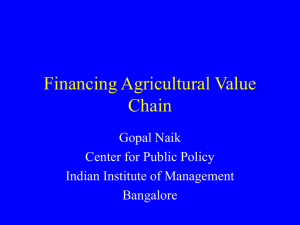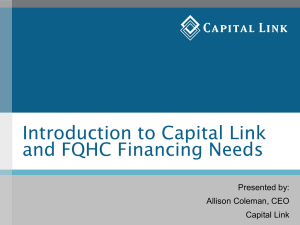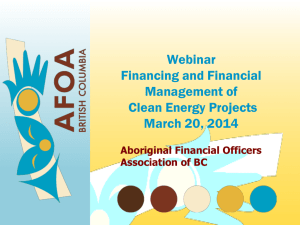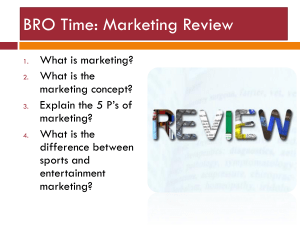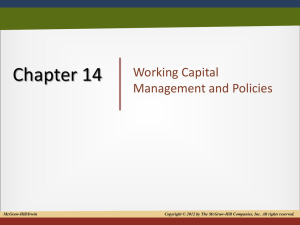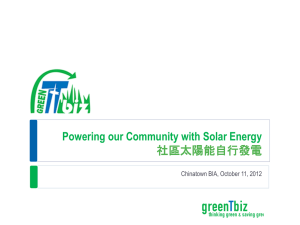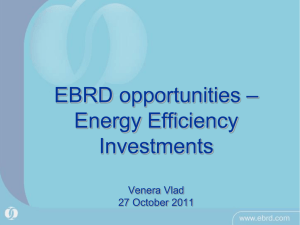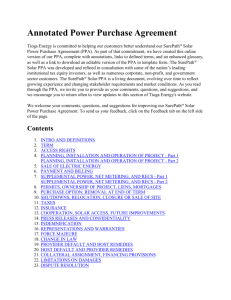Financing RE Projects
advertisement
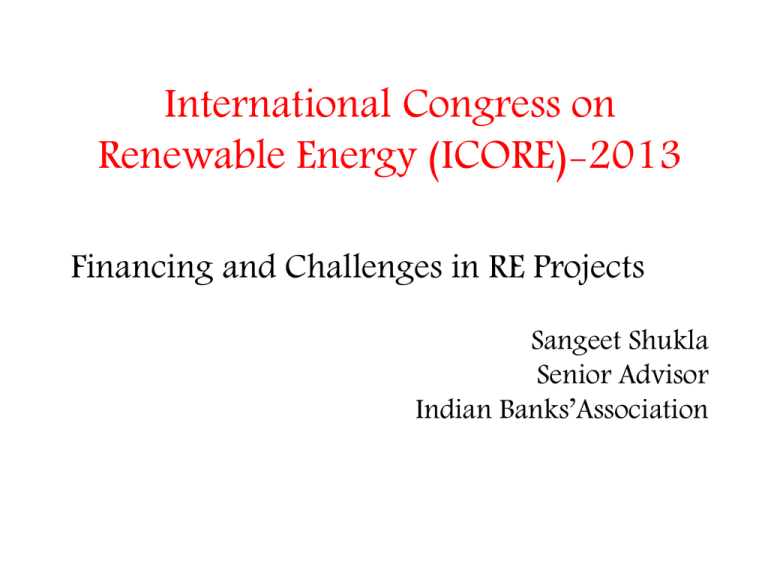
International Congress on Renewable Energy (ICORE)-2013 Financing and Challenges in RE Projects Sangeet Shukla Senior Advisor Indian Banks’Association Financing RE Power Projects • The RE Scene in India (March 2013) – Wind Power – Small Hydro Power – Biomass Power – Solar Power – Others 19,051 MW 3,632 MW 3,602 MW 1,686 MW 3,096 MW Total RE Capacity 28,067 MW Financing RE Power Projects The popularity of Wind Power project was contributed by the substantial depreciation benefits available in the year of implementation. The viability of projects is, therefore, depends on continuation of the depreciation benefit. Wind Power projects are funded on a name-lending basis. The Solar PV and Small Hydro-electric Power projects have a long project life cycle with a marginal cushion for loan repayment in DSCR. There would be a need to build a Debt Service Reserves from the project cash approvals, beginning immediately after SCOD. All RE projects would be eligible for the Certified Emission Reduction (Carbon Credits) . However, in the depressed market these do not add substantially to the cash flows. Financing RE Power Projects Apart from Wind Power and Solar Power projects, other projects have been traditionally funded by the Indian banks following simple principles of credit appraisal. Most of other projects have not been financially viable due to a host of reasons. The conventional projects need to demonstrate their capacity to survive the fluctuations in their eco system. In the next slides, we examine the various risk factors, which lenders consider important while appraising RE Projects. A matrix of Risk rating helps banks in the lending decision. Financing RE Power Projects Promoter Risk/Management Risk - Examine Whether the promoters have a well-qualified management team with adequate experience in commissioning and operating power projects. Risk Perception: Low/Medium/High Implementation Risk - Examine. Whether the project parameters have been designed after a thorough study of technology and detailed discussions with technology providers and EPC Contractors. Risk Perception: Low/Medium/High Financing RE Power Projects Approvals and clearances Environmental Clearance: The wind based and PV based solar power plants do not require clearance from Ministry of Environment & Forest (MoEF) as per GoI’s EIA Notification of Sepember 2006. Whether project areas are in forest area? Examine whether forest clearances required. Wind Energy and Solar PV projects do not require many approvals. Whether major approvals required for setup have already been obtained or are in advance stage of processing. Pollution Control Board (PCB) Clearance : Whether the Company has obtained PCB Clearance. Risk Perception: Low/Medium/High Financing RE Power Projects Land Acquisition Risk : Examine Adequacy of land Lease Period for Land, if leased for project life. Whether leasehold rights can be mortgaged. Whether there are any resettlement & rehabilitation issues Equity & Debt Funding Risk :Examine Debt - Equity is as per norms 2:1! Promoters’ Capacity to raise desired equity Financial closure for Debts Financing RE Power Projects Technology Risk : In solar power projects, the technology risk is one of the major risks generally perceived by the lenders. Evaluation of modules, invertors and other equipment. Insolation level at site. Degradation of solar panels over period of their usage etc. Cost and time overrun Risk : Examine whether The project will be implemented by way of fixed price fixed time EPC contract Currency risk for procurement of modules and invertors has been hedged. Promoters absorb first part of the cost over-runs, if any. EPC Contractors are liable to pay by way of penalties, enough LD to cover the liquidated damages as per the PPA. Risk Perception: Low/Medium/High Financing RE Power Projects Performance Shortfall Risks: – Whether Performance Ratio of system have been guaranteed by the technology provider/EPC Contractors for the entire project life . – Whether EPC contractors have provided Performance Bank Guarantees valid for at least 2 years after the project completion and a Performance Ratio Bank Guarantee of an adequate amount valid for 7-10 years to cover the shortfall in project revenues. – Lenders’ Independent Engineer (LIE) should verify adequacy of bank guarantee amounts to cover the project revenue shortfalls and ensure the Project DSCR is maintained at acceptable levels. – Carryout sensitivity analysis to ensure that in adverse conditions the project can bear 20% fall in revenues without any default. Financing RE Power Projects Operations and Management (O&M) Risk -Examine Whether the agencies appointed for O&M have sufficient experience in managing projects, if not can they outsource capabilities Performance Risk – Examine Whether wind factor data for wind power project gives confidence level of 20% variation to sustain profitability Whether insolation level and performance ratio are reliable and give confidence level of 20% variation to sustain profitability. Risk Perception: Low/Medium/High Financing RE Power Projects Evacuation Risk - Examine – Whether power evacuation infrastructure will be ready before SCOD. – Whether adequate transmission infrastructure will be ready before SCOD . Risk Perception: Low/Medium/High Financing RE Power Projects Market Risk (Off take and Tariff ) - Examine – Whether a power purchase agreement (PPA) has been executed between the company and state agency as per the terms of the scheme applicable. – Whether the tariff under PPA is linked to project commissioning before/after SCOD whether the company will receive the compensation in case of implementation delays. – Whether PPA contains a termination clause and its impact on the continuing project viability. Financing RE Power Projects Other Issues – Long Door to Door Project Loan tenors- 13+years. – Market determined Interest rates- 1.50%-3.50% over the base rate. – Sharp decline in the prices of solar modules leading to a distrust of project costs. – Frequent breakdowns of Wind Power Equipment. – Uncertainty on Pricing Policy of RE Power. – Recent notices to revise tariff under existing PPAs. Thank you

